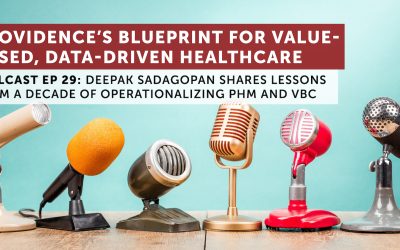
For all of the dissatisfaction about the prescriptive nature of the EHR Incentive Program, it did put technology in the hands of a lot more clinicians. The next task is to make all of this technology and the data captured in EHRs more widely available for clinicians. The ability of the industry to make a successful transition to a value-based payment regime depends on better sharing of clinical data across a heterogeneous EHR landscape, otherwise known as interoperability.
Congress is mulling various options for incentivizing better interoperability. The Senate recently held hearings on how the EHR Incentive Program impacted interoperability. Many of the same Senator’s concerns were aired in a Health Affairs blog earlier this month. Last year, Congress urged ONC to consider decertification of EHRs that block interoperability.
Of the options under consideration, one — called the Discussion Draft — is extraordinary for its scope and specificity. However, if you blinked you missed it. It was issued around March 9th and the sponsoring legislator (probably not coincidentally the sponsor of the SGR Fix) took feedback via email until March 13th. Most of the press coverage was published after that deadline. There is also nothing about the draft on the legislator’s website. The entire process seems to have been conducted or publicized through some health IT and political reporters.
The Discussion Draft really has to be considered a trial balloon. There is plenty not to like about this plan for people who favor small government and for people who believe government should play a major role in the economy. Its major provisions require EHRs to provide open, unrestricted access to all patient data or risk decertification and civil penalties. It prohibits any vendor or provider from blocking access to data. It applies to both EHR vendors and providers. It adds published APIs as a requirement for EHR certification.
The Discussion Draft kills the HIT Policy Committee and the HIT Standards Committee but leaves the door open for some kind of replacement. It creates something called a Charter Organization that will recommend methods for measuring whether something is interoperable or not. The Charter Organization would consist of 12 members — 6 each to be appointed by the majority and minority leaders of the House and Senate respectively from providers, HIT vendors and others — as well as some members from various standards organizations. The job of the Charter Organization is to recommend ways to measure interoperability after a process consisting of hearings and a final report. HHS can take or leave recommendations from the Charter Organization.
The Draft also requires HHS to provide a lot of reports to Congress. By 7/1/16, it will expect one about the methods for measuring interoperability, strategies for achieving interoperability, assessments of how EHRs achieve interoperability, barriers, and plans to achieve better interoperability. By 12/13/17, it will need a list of EHR vendors and their progress towards interoperability, what the non-compliers are doing to be non-compliant, and penalties to be assessed after 1/1/2019.
Decertification is a draconian penalty and could have significant long-term consequences for affected providers. However, it is not at all clear that from this Draft that HHS will in practice be able to decertify many EHRs. Vendors or providers who, through “knowing and willing action” (financial, administrative, or technological) create barriers that limits, prevents, or disincents interoperability risk decertification. The key words “knowing and willing” mean that a vendor or provider can successfully defend an enforcement action by claiming that its offense was inadvertent. The defense goes something like: “I was unaware that my EHR was doing XX and promise not to do it in the future.” This also presupposes that enforcement actions will occur, an increasingly uncommon event.
This Draft will do nothing about the problem it purports to solve. It ignores the root cause of interoperability ills – the payment system rewards the behavior that it would punish. The Draft make the EHR Incentive Program vastly more prescriptive than it already is. It adds new attestations for providers and will undoubtedly produce Frankenstein-like measures of “openness”. It also imposes the threat, albeit weak, of fines and decertification for who might already have been penalized for not attesting.
Most importantly, it is fundamentally a provider-centric solution to a problem that is all too visible to patients. One way to accomplish the goal of better interoperability would be to focus more on how the problem is experienced by patients than on the mechanics of blocking access to data. By focusing exclusively on the activities of providers and their EHR vendors, this trial balloon of a proposed law overlooks the very real consequences outcomes of poor interoperability. The technical challenges of interoperability are well understood by everyone. All told, this would be a heavy-handed attempt that would serve only to further entangle the industry in red tape, reporting, and recriminations.




0 Comments
Trackbacks/Pingbacks